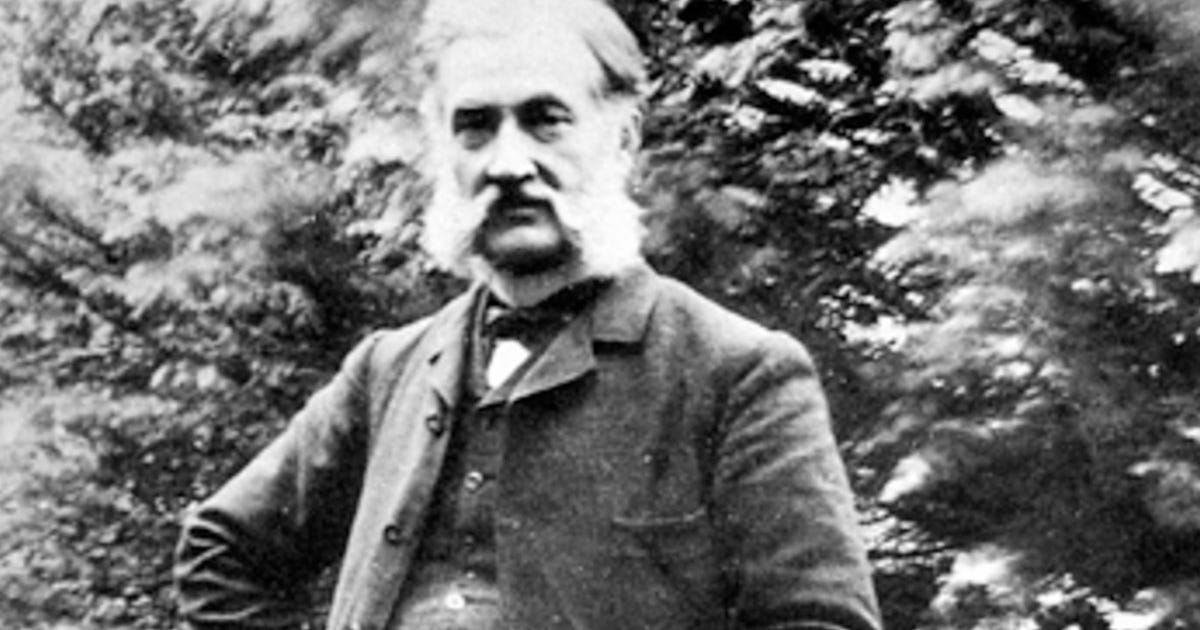🎥 The Vanishing Genius: The Mystery of Louis Le Prince – Father of Cinema 🎩🕵️♂️
🎬 When we think of the pioneers of cinema, names like Thomas Edison or the Lumière brothers often dominate the spotlight. But before these giants stood behind the lens, one brilliant inventor quietly revolutionized visual storytelling: Louis Le Prince.
This French-born innovator created the first moving picture camera — years before Edison or the Lumières. But just as he was about to demonstrate his invention to the world, he vanished without a trace. 😱
This isn’t just a historical footnote — it’s one of the most fascinating and unsolved disappearances in the world of invention and art.
Let’s explore:
📸 Who was Louis Le Prince?
🎞️ His groundbreaking invention
🧳 His eerie disappearance
❓ The theories that still haunt cinema history
🎩 Meet Louis Le Prince: The Forgotten Father of Film
Born on August 28, 1841, in Metz, France, Louis Aimé Augustin Le Prince had a fascination with art and science from a young age. 🧠🖼️
His father was friends with none other than Louis Daguerre, the inventor of the daguerreotype photographic process. As a child, Le Prince visited Daguerre’s studio, igniting a lifelong passion for images and innovation. 🔥
📚 Le Prince studied painting and chemistry in Paris and Leipzig, eventually working in photography and teaching fine arts. He married Elizabeth Whitley, and the two moved to Leeds, England, where he helped found the Leeds Technical School of Art.
It was there that Le Prince began experimenting with motion photography in the late 1870s and early 1880s — a full decade before Edison’s Kinetoscope or the Lumières’ Cinématographe. 🤯
📽️ The Invention That Changed Everything
Le Prince wasn’t just a tinkerer — he was a genius innovator. Between 1886 and 1888, he developed a working single-lens camera that could record a sequence of images on film.
🎥 In 1888, he filmed the first known motion picture: Roundhay Garden Scene in Leeds. This brief but historic clip showed his family walking in a garden — the birth of film. 🌱
![📷] The 2.11-second film may look like a flickering memory now, but it pre-dates Edison’s and the Lumière brothers’ inventions by years.
🔍 He also recorded moving images of Leeds Bridge and other scenes. His machine could project the film as well — something Edison’s early devices couldn’t do!
💡 In short, Le Prince had already achieved what others claimed credit for later.
🧳 The Journey to Immortality — And a Vanishing Act
In September 1890, Le Prince planned to unveil his invention in New York. This demonstration would secure his place in history and patent his technology in the U.S. — a critical move as competitors like Edison were looming.
🚆 But before heading to America, Le Prince took a trip to Dijon, France, to visit his brother Albert.
On September 16, 1890, he boarded a train from Dijon to Paris… and then vanished forever. 😨
He never arrived in Paris.
No one saw him exit the train.
His luggage, camera, and prototype film were never recovered.
No body was ever found.
It was as if the father of cinema had been erased from history. 🧩💀
📅 Timeline of Key Events
DateEvent1841Louis Le Prince is born in Metz, France 🇫🇷1870sBegins experimenting with moving images 🎞️1887Patents his multi-lens camera in the U.S. 📜1888Shoots Roundhay Garden Scene 🎬1890Plans U.S. demonstration 🚢Sept 16, 1890Boards Dijon-Paris train — disappears forever 🕵️♂️❌
🧠 Why Wasn’t He Celebrated Like Edison?
Because he disappeared, Le Prince was never able to present his invention. Just a year later, Thomas Edison filed his own motion picture camera patent in 1891.
🧾 Edison’s company was notorious for litigating aggressively to control the patent rights to film technology — and without Le Prince alive to challenge him, Edison dominated the early history of cinema.
📚 For decades, history books largely excluded Le Prince’s contributions, favoring American and commercial narratives.
It wasn’t until researchers and historians re-examined early records and footage that Le Prince’s genius re-entered the spotlight. 🔦
🕵️♂️ Theories About What Happened to Louis Le Prince
The disappearance of Louis Le Prince is one of the greatest mysteries in technological history. Multiple theories have emerged over the years, each as fascinating and disturbing as the next.
1. 💰 Industrial Sabotage — Edison’s Role?
Many speculate that Thomas Edison or his allies had a motive to eliminate Le Prince. 👀
Edison wanted dominance over motion picture patents.
Le Prince had documented evidence of creating the camera first.
His planned New York demo would have secured global recognition.
While no concrete evidence ties Edison to Le Prince’s disappearance, the timing and outcome are suspicious. 😬
👀 Coincidence? Or conspiracy?
2. 🧠 Mental Illness or Suicide
Another theory suggests Le Prince was mentally unwell and may have taken his own life.
Some letters suggest he was under extreme stress.
His brother may have had knowledge of Le Prince’s mental health at the time.
There are hints that family members didn’t pursue a full investigation, which has puzzled historians.
Still, no body or suicide note was ever found, and Le Prince was by all accounts excited about the New York demonstration. 🤔
Would he have abandoned everything — his work, family, and legacy — so suddenly?
3. 🧳 Disappearance for a New Identity?
Some suggest that Le Prince staged his own disappearance to escape pressure or begin anew. 🌍
But why disappear right before claiming victory in a major invention?
He left behind his wife, children, and life's work.
It’s an unlikely theory, but one still whispered among speculative minds. 🕶️
4. 🗡️ Murder by His Brother?
This chilling theory focuses on his brother, Albert, the last person to see him alive. 😨
Did they argue over money or inheritance?
Was Albert pressured or bribed?
Could it have been a crime of opportunity?
Albert claimed he saw his brother off at the station… but no other passenger ever remembered seeing Le Prince aboard. 🚂
What really happened between the brothers that day?
5. 🛶 Accident or Foul Play on the Train?
Some believe Le Prince may have been attacked on the train or thrown off en route.
But where’s the body?
How did no one notice a disturbance?
Was the crime covered up?
🚂 Trains in that era weren’t as secure as today’s — with private compartments and minimal oversight — making such a scenario plausible but difficult to prove.
6. ☠️ The Seine Corpse Mystery
In 1890, a drowned man’s body was pulled from the Seine River in Paris. A police photo surfaced decades later, showing a man bearing a strong resemblance to Le Prince. 🧍♂️🌊
Could this be him?
Some believe yes — suggesting suicide, murder, or robbery. But the body was never officially identified, and no autopsy was recorded. 📷
👨👩👦 The Legacy That Almost Wasn’t
Le Prince’s son, Adolphe, tried for years to vindicate his father. He presented evidence during legal battles against Edison over the rightful inventor of film.
💼 In 1898, Adolphe testified that his father had working films long before Edison. But the court sided with Edison anyway.
💥 Tragically, just two years later, Adolphe was shot and killed in a hunting accident — adding another eerie twist to the Le Prince story.
👻 Some theorists wonder if Adolphe was silenced, too. Others say it was coincidence. But the saga of the Le Prince family became even more tragic.
🕯️ Rediscovering the True Pioneer of Film
In recent decades, historians and filmmakers have begun giving Le Prince the credit he deserves.
🎓 Academic works, documentaries, and online platforms have chronicled his life and groundbreaking inventions. The British Film Institute, among others, has called him “the true father of film.” 🇬🇧
🎥 His original footage is preserved and even viewable online — brief, flickering fragments of cinema’s true origin.
💬 Quotes like these now echo through film history:
“Before Edison and before the Lumière brothers, there was Louis Le Prince.” — Film Historian
🎖️ His name is finally receiving the respect denied to him in life.
🧩 Unanswered Questions
Why did no one on the train remember seeing him?
What happened to his luggage, his camera, and the film reels?
Why was his family so subdued in pursuing justice?
Could someone have buried the truth?
Even now, 135+ years later, the truth remains elusive. The trail is cold, the suspects are long gone, and the evidence? Mostly speculation and whispers in the archives. 🕯️
But the question remains:
Was the father of cinema silenced… or simply lost to time?
🗝️ Final Thoughts: The Man Who Filmed Before Anyone Else 🎬
Louis Le Prince should have been a household name. He should be as familiar to us as Edison or Spielberg. But history played a cruel trick.
Just as he reached the brink of fame, he vanished without a trace, leaving a mystery behind more enigmatic than any film noir.
🎥 Yet thanks to historians, technologists, and curious minds, his legacy is rising from the reels of time. And with every frame of Roundhay Garden Scene, we’re reminded:
Cinema didn’t begin with Edison. It began with Le Prince.
👁️🗨️ Want More?
🔎 Explore the full Roundhay Garden Scene online
📚 Read The Missing Reel by Christopher Rawlence
🎞️ Watch “The First Film” (2015) documentary
📬 Subscribe to TheColdCases.com for more historical mysteries like this! And get our Citizen Detective Training PDF!
🧠 Be a part of history — keep the story of Louis Le Prince alive!













